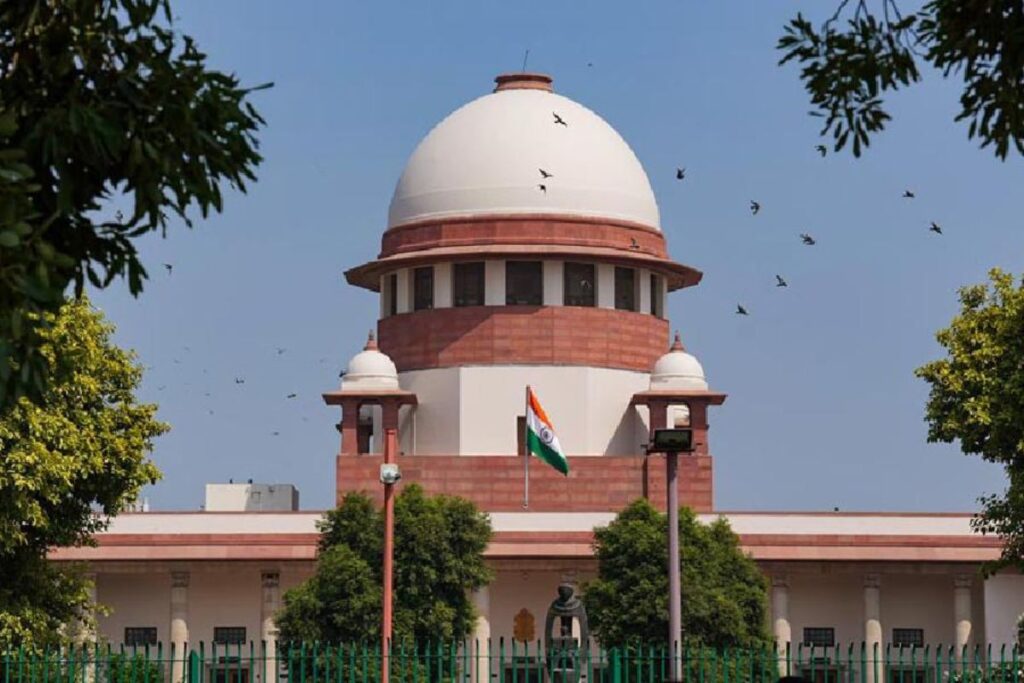Jahanvi Agarwal
The Supreme Court, in its order dated July 19, emphasized that compliance with an order under threat of contempt does not eliminate the right of a party to challenge that order. Justices C.T. Ravikumar and Prashant Kumar Mishra were addressing an appeal stemming from a land dispute. Initially, the petitioners, now appellants, filed a writ petition in the High Court of Andhra Pradesh, which was dismissed. Their subsequent review petition was also rejected, leading them to file a writ appeal. However, the High Court’s division bench dismissed this appeal, citing it as meritless and refusing to condone a 614-day delay in filing.
The High Court of Andhra Pradesh noted the delay in the case and concluded that the applicants had not provided a reasonable explanation for it. The Court suggested that the applicants might have fabricated the fraud allegations in order to get the delay excused. When the case reached the Supreme Court, the Bench referenced the decision in Re: Cognizance for Extension of Limitation [Suo Moto Writ Petition (C) No. 3 of 2020], which excluded the period from March 15, 2020, to February 28, 2022, from the limitation period due to the COVID-19 pandemic and lockdown. Additionally, a further 90 days from March 1, 2022, was allowed for challenging relevant judgments or orders.
Senior Advocate R Basant argued that the writ appeal was filed within the required timeframe after receiving a certified copy of the review order. The Supreme Court acknowledged this, stating, “Taking note of the aforesaid explanation, we are inclined to hold that petitioners have satisfactorily explained the delay, if any, in preferring appeal against the judgment in W.P. No. 16019 of 2020.”
The High Court of Andhra Pradesh referenced the case of Postmaster General and Others v. Living Media India Limited (2012) 3 SCC 563. In this case, it was emphasized that the parties involved were fully aware of the issues at hand, including the specific time limits for filing a special leave petition in the Supreme Court. The Court noted, “They cannot claim that they have a separate period of limitation when the Department was possessed with competent persons familiar with court proceedings.” Thus, the argument for an extended limitation period due to alleged unfamiliarity with legal processes was rejected.
However, the Supreme Court criticized the High Court of Andhra Pradesh for not adequately evaluating the appellant’s case in light of the referenced decision. The apex court pointed out that the High Court did not explain why it deemed the appeal meritless and highlighted that “Paragraph 4 of the impugned judgment does not reveal any application of mind in considering the case of the appellant.” Essentially, while the High Court of Andhra Pradesh concluded that the appeal lacked merit, it failed to provide any reasons for this decision. The Supreme Court emphasized that “application of mind can be reflected only through reasons” and remarked that the judgment appeared to be the result of a cursory consideration.
Consequently, the Supreme Court condoned the delay, set aside the impugned order, and restored the writ appeal to the High Court of Andhra Pradesh for reconsideration.
Case Name: The State Of Andhra Pradesh v. Kopparla Santhi
Dairy Number: 4011/2024
Bench: Justices C.T. Ravikumar and Prashant Kumar Mishra

